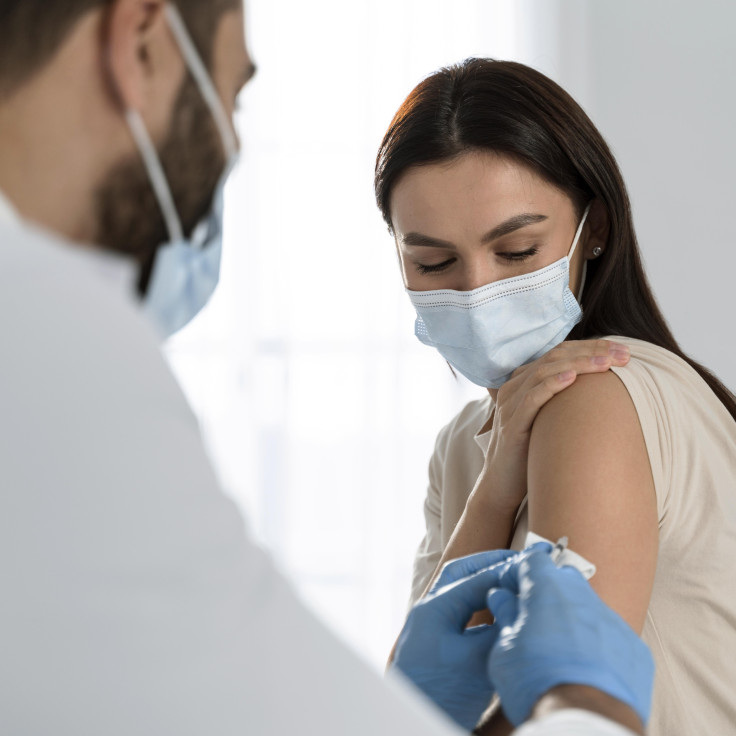Timing Of COVID-19 Shot Can Affect Menstrual Cycle Length: Study

Timing of COVID-19 vaccination is associated with slight, temporary changes in the length of the menstrual cycle, a recent study revealed.
Although the association between the COVID-19 vaccine and menstrual cycle length was previously known, researchers now found more evidence of the link and identified how the timing of vaccination is specifically linked to changes in the length of the menstrual cycle.
Those individuals who receive a COVID-19 vaccine during the first half of their menstrual cycle are more likely to experience cycle length changes than those receiving a vaccine in the latter half, according to the study published in the journal Obstetrics & Gynecology.
"Understanding these changes on a population level allows us to more effectively counsel patients about what to expect with a COVID-19 vaccine. We hope this work helps validate the public's experiences and ease fears and anxiety around vaccination," said Alison Edelman, the study's lead author in a news release.
To investigate the potential association between the timing of COVID-19 vaccination and changes in menstrual cycle length, researchers looked at data from nearly 20,000 users of the FDA-cleared Natural Cycles birth control application. The individuals involved in the study granted permission for researchers to use their de-identified data for the study.
The researchers examined the menstrual cycle length of three groups: those who got vaccinated during the early phase of their menstrual cycle when the body prepares for ovulation (follicular phase), those who got vaccinated after ovulation (during the luteal phase), and a group of people who did not get vaccinated (the control group).
"Analysis shows that individuals who were vaccinated in the follicular phase experienced, on average, a one-day increase in cycle length when compared with their pre-vaccination cycle average. Changes typically resolve in the cycle after vaccination," the news release stated.
However, the exact mechanism behind the increasing cycle length is not known.
"We are constantly learning about how our bodies work together, but we do know the immune and reproductive systems interact closely with one another. Based on this relationship, it is certainly plausible that individuals may see temporary changes in their menstrual cycle due to the immune response that vaccines are designed to produce," Edelman noted.
The findings should not be a cause for concern as researchers emphasize that if there are any changes in menstrual cycle length due to vaccination, they are expected to be minor and temporary. However, if someone experiences prolonged changes in menstruation, it is advisable to consult with a doctor.
Since the study is based on data from individuals with regular menstrual cycles before vaccination, additional research is needed to understand how vaccination will affect those who have pre-existing irregularities in their cycle. Also, further research is required to understand how other aspects of menstruation are affected by COVID-19 vaccination.



























